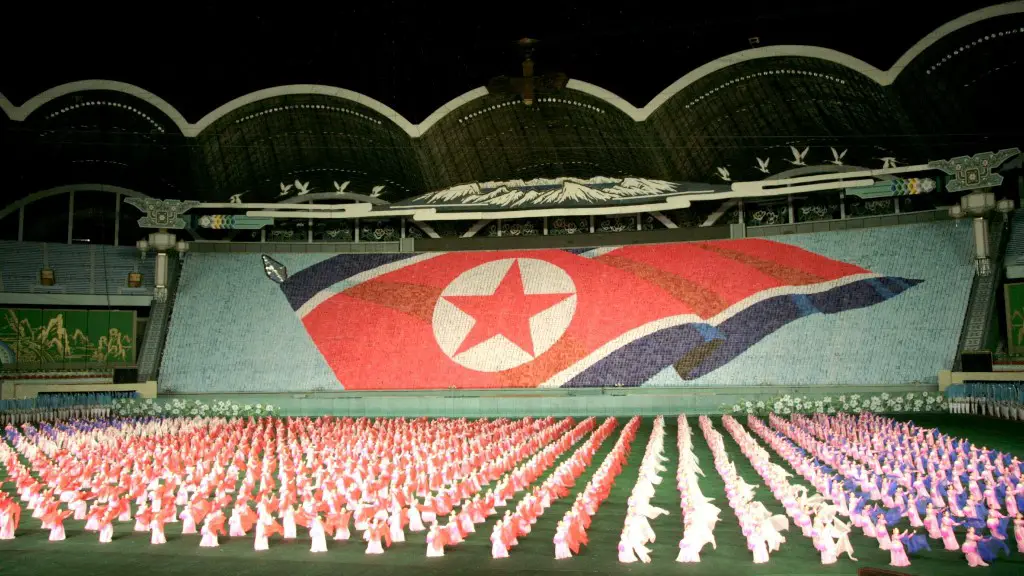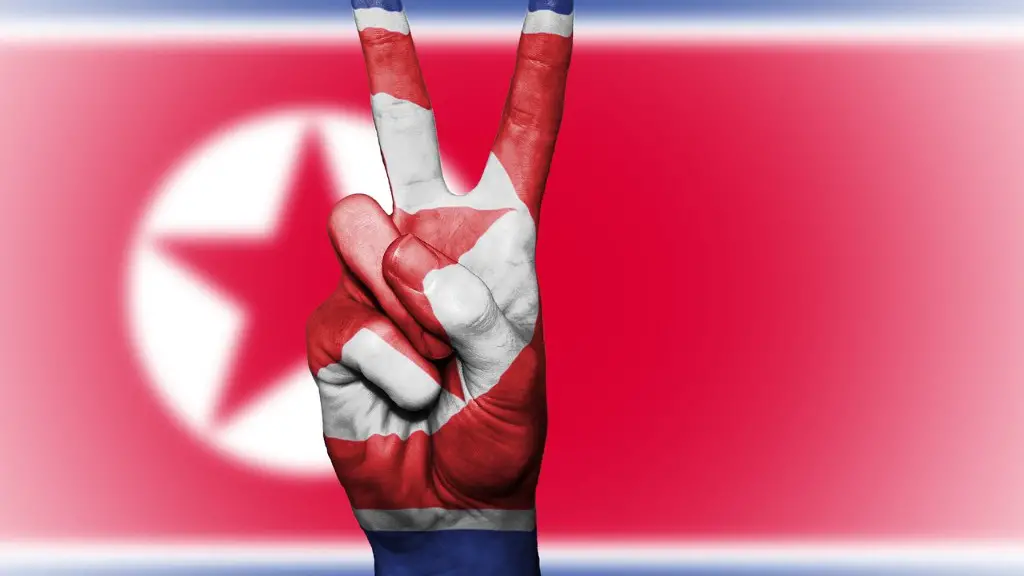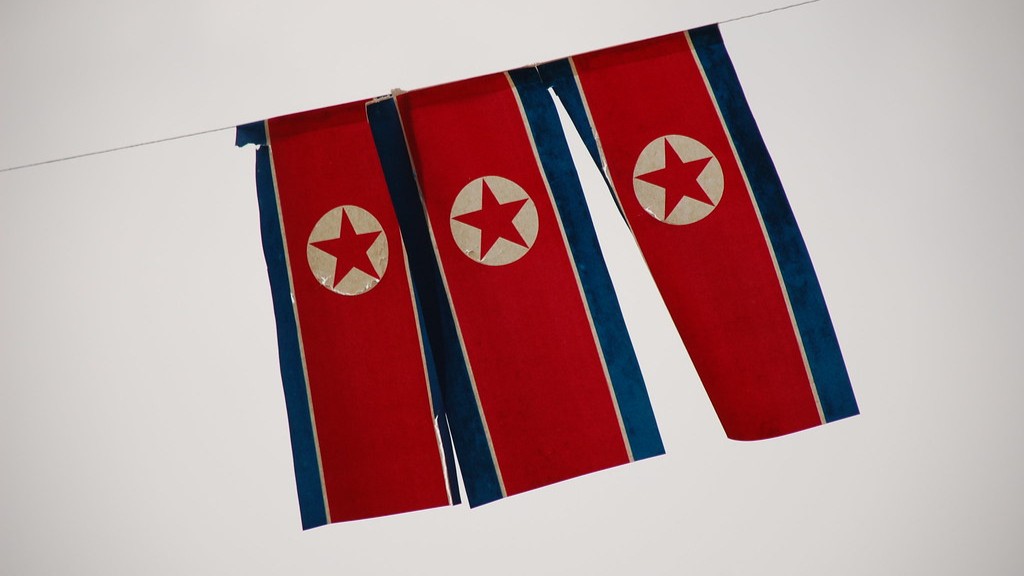Why Not Nuke North Korea?
North Korea is a nation that has made headlines in recent years, due to its nuclear weapons testing, which violates international treaties and threatens to plunge the region into war. The US and the international community have taken a number of steps to try to bring North Korea to the negotiating table and are exploring more options, including the use of military force. This paper will discuss the potential consequences of taking a hard stance towards North Korea and nuke the country.
The US and other countries could use nuclear weapons to deliver a devastating blow against North Korea, in less than a few minutes’ time. It is believed that this would effectively put an end to its weapons stockpiles, eliminating the threat of an immediate nuclear attack on the Korean peninsula and its neighbors. However, the potential consequences of a nuclear strike are far reaching.
Experts warn that a nuclear strike could cause devastating long-term consequences, including the potential for a humanitarian disaster and political chaos. North Korea could retaliate with conventional weapons or by launching devastating cyberattacks that could cause significant disruption around the world. It could also lead to a refugee crisis, with millions of people fleeing the region in search of safety.
Numerous studies have shown that dropping a nuclear bomb on North Korea could also trigger global economic damage. The shockwaves from such an attack would cause a devastating regional recession, leading to a worldwide market crash. Furthermore, it could have a major environmental impact, due to the release of radioactive material, which could cause long-term health complications for those affected.
Not only are the potential long-term consequences severe, but there has been much debate as to whether such a strike would even be successful. In a highly militarized nation such as North Korea, there is a strong likelihood that the government could launch a counterstrike event or escape underground, making the likelihood of achieving a successful strike low. Furthermore, there are concerns that the international community would be hostile towards the US for its actions, leading to a loss of diplomatic prestige and economic ties.
Finally, there is the moral argument. The use of nuclear weapons is a highly controversial issue, and many argue that it is a violation of international law and poses too high a risk of indiscriminate mass casualties. Such a decision would also set a dangerous precedent, with other countries feeling emboldened to acquire and use nuclear weapons of their own.
International Sanctions and Negative Economic Impacts
The United States and the United Nations have imposed a series of economic sanctions against North Korea in an attempt to bring the nation to the negotiating table. It is hoped that the sanctions will create an atmosphere of economic and political pressure, causing the North Korean government to reconsider its policies and enter into productive discussions. However, there is evidence that the sanctions have had a serious negative impact on the North Korean people, leading to widespread poverty and deprivation.
The latest United Nations report, assessed the effects of sanctions on agriculture, health, education, and food security in North Korea, generating significant concerns over the potential long-term consequences. Reports suggest that food shortages have already resulted in a 16-percent rise in chronic malnutrition in the country, affecting children in particular. It is estimated by the World Food Programme (WFP) that 11 million North Koreans are facing food insecurity, up from six million in 2017.
Aside from the humanitarian issues, the economic sanctions have exacerbated economic hardships for many in the nation. The US and its partners have limited the export of fuel, electronics and other essential items to the region, resulting in a dramatic reduction in the country’s exports and a subsequent drop in economic growth. Furthermore, it has severely hampered North Korea’s international trading partners.
The economic sanctions have been met with criticism not only from humanitarian organizations, but also from states concerned about the potential long-term consequences. China, one of North Korea’s closest allies, is particularly wary of the US-led sanctions regime, with recent reports suggesting that Beijing is now considering alternate trade routes to bypass US economic penalties.
Diplomatic Solutions
In addition to the military and economic approaches taken by the US, diplomatic solutions are being developed in an attempt to resolve the looming tensions between the countries. Diplomatic efforts are focused on providing a viable framework for negotiations and providing incentives for North Korea to make significant changes, such as dismantling its nuclear weapons stockpile.
Several attempts have been made to engage North Korea in meaningful dialogue, and efforts have seen some success. North Korean leader Kim Jong Un and US President Donald Trump have met on several occasions, although tensions remain high. In addition, China and Russia, two of North Korea’s closest allies, have been instrumental in encouraging negotiations, advocating for the resumption of diplomatic talks.
One of the main goals of these diplomatic efforts has been to build confidence between the US and North Korea, in the hope of creating an atmosphere conducive to dialogue. To this end, the US has, on occasion, provided food and fuel aid to the nation, in an effort to relieve economic hardship and ease the pressure on its people.
The Trump Administration has also taken a different approach to Dialogue with North Korea, seeking to engage with Pyongyang on its terms and offering economic incentives in exchange for nuclear disarmament. The US administration has made it clear that it will not accept denuclearization as a condition for establishing diplomatic ties, but that it is seeking a peaceful conclusion to the conflict, where both sides can benefit.
Negative Effects on the Region
The potential consequences of a potential conflict between North Korea and the US and its allies could be devastating, both economically and in terms of human life. Aside from the potential casualties, there could be significant disruption to shipping in the region, damaging the fragile economies of North Korea’s neighbors and further destabilizing an already turbulent region.
A key concern is the potential for North Korea to target its neighbors. South Korea, for example, is in danger of becoming the focus of a full-scale military conflict, due to its proximity to the border with North Korea. Pyongyang is already reported to have thousands of missiles that can hit the South in a matter of minutes. Such an event could result in an unprecedented loss of life and would almost certainly lead to another full-scale war in the region.
In addition, there are worries that Japan, a US ally, could become the target of North Korean aggression. Japan is particularly vulnerable due to its sophisticated air defense system, which makes it a prime target for a North Korean attack. It is also believed that Pyongyang could launch cyberattacks against the nation, disrupting their public infrastructure and damaging the Japanese economy.
Civilian Casualties
Civilian casualties are a major concern in the event of a conflict between North Korea and its neighbors. North Korea is known to have large stockpiles of weapons of mass destruction, including chemical and biological weapons, as well as a large conventional military force. It is feared that North Korea could launch devastating attacks against its neighbors, resulting in enormous civilian casualties.
The US and its allies are particularly worried about the potential for civilian casualties in the event of a conflict with North Korea. This is why the US has invested so heavily in missile defense systems, such as the BMD, in order to protect the US from a potential attack from the North. Despite these efforts, the US has still expressed its concern about the potential for civilian casualties in the event of conflict.
Furthermore, there are fears that a nuclear attack on North Korea could result in a large number of civilian casualties, due to the radioactive fallout from the blast. The radioactive material would spread across the region, endangering the lives of those in the vicinity. Furthermore, the destruction of the nuclear infrastructure could lead to a potential humanitarian crisis, as millions of North Koreans could be left without food, shelter, or medical care.
Regional and Global Repercussions
The potential repercussions of a conflict between North Korea and its neighbors could be felt not only in the region, but also around the world. The use of nuclear weapons, by either side, could lead to a global arms race, as other nations seek to acquire the same level of weaponry. It could also cause the already tenuous relations between the US and China to worsen, leading to a further destabilization of the international order.
Furthermore, US allies in the region, such as Japan and South Korea, could become caught up in the conflict, leading to economic hardship for their citizens. Already strained relations with China and Russia could become even more tense if North Korea were to launch an attack, leading to further escalation.
In addition, the global economy could suffer, as a potential conflict with North Korea could lead to a dramatic spike in oil prices. This could result in an economic recession, as businesses around the world struggle to cope with the rising cost of energy. Finally, the humanitarian fallout from a conflict could be enormous, as millions of people could be left without access to food, shelter, or medical care.





